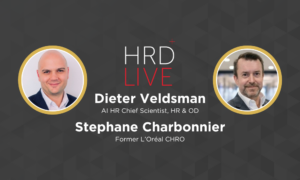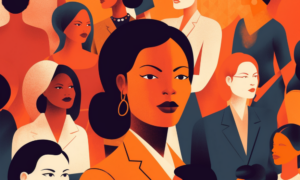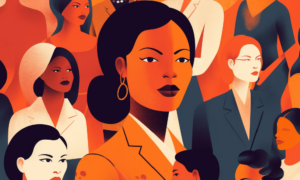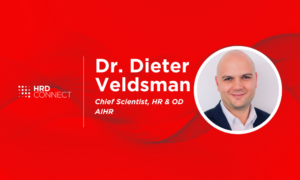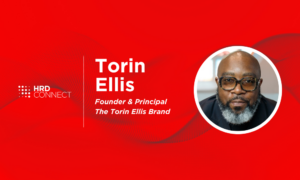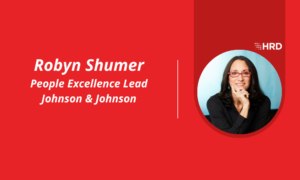How HR can fine-tune leadership development for the new world of work
- 5 Min Read
Not only can leaders help organizations to navigate crisis, but perhaps they can also reshape the workplace along the way. Whether this comes down to technology, trust or diversity, 2020 could be the year for leaders to truly innovate and harness potential. Terence Mauri, HRD Thought Leader, outlines how this can be achieved through leadership development.
- Author: Terence Mauri
- Date published: Jun 17, 2020
- Categories

A CEO recently said to me that the year 2020 is cancelled. I disagree. I believe that this year is a once-in-a-lifetime opportunity for leaders to not just return to work, but reimagine work.
The last three months has made me realize that a crisis can be a gateway from one world to another. Sometimes you need one to accelerate change and eliminate outdated mindsets. Never has this been more true than right now.
The global pandemic has turned our world upside down and accelerated disruption from the blurring of industry lines and economic and geo-political uncertainty, to disruptive technologies and the shrinking of company and product lifespans. It has forced us to rethink how and why we work, job satisfaction, and ethical leadership.
Here are five ways HR can help leaders transform for a brave new world of work.
From money to meaning
Economist Milton Friedman stated that the purpose of an organization was solely to make profit for its shareholders. This no longer holds relevance in a world of disease, debt and disruption. With a new, more responsible mandate emerging, the challenge for leaders is to rethink what makes organizations successful. Though 87% of executives agree that purpose should extend beyond profit, only 35% deliver on a multi-stakeholder model today.
Consideration: How do you balance economics and empathy to build an inclusive, sustainable, and resilient organization where health, wellbeing and career are at the core? And what steps can be taken to accelerate progress on environmental, social and governance (ESG) goals?
From scaling efficiency to scaling intelligence
Are you ready to win the future or be disrupted by it? The 20th century was about scaling efficiency and doing things right rather than doing the right things. The winners of tomorrow will scale intelligence, with the race to reskill and upskill being a top leadership priority.
I call it ROI. Not return on investment, but return on intelligence. Every organization says it wants to invest in new ways of working and embark on a major transformation in 2020, and almost all report significant skill gaps.
The C-suite regards scaling intelligence through reskilling and upskilling as a top talent investment capable of driving business advantage. And yet according to Mercer, just 34% of HR leaders are investing in this as part of their future of work strategy.
Consideration: Do you have a well-defined workforce learning and reskilling strategy? How is your organization embracing new ways of working such as AI and automation?
From control to trust
In the not too distant past, trust was considered a ‘soft’ corporate issue. Its connection to a company’s value was always there, but unclear. But not anymore. I define trust as a confident relationship in the unknown. It’s at the heart of every action, relationship and transaction. Trust has entered center stage for HR over the last few months.
But can leaders rebuild years of eroded trust? According to Edelman’s Annual Trust Barometer, 58% of people do not trust organizations to do the right thing, and 20% of workers would trust a stranger more than their own boss. George Orwell would have relished these times. Fake news, false facts, meme warfare, data breaches, tainted food and digital skulduggery.
According to McKinsey, 10 out of 15 industry sectors have reported a decline in trust over the last three years. And to put that into monetary terms, a $30bn retail company will, in theory, lose $4bn in future revenue due to a loss of trust.
Consideration: Do you bake trust into the DNA, strategy and day-to-day operations of the organization? How do you use measure trust across the whole stakeholder mix from employees, to customers, suppliers, investors, analysts and the media?
From ‘doing digital’ to ‘being digital’
Tesla is moving into insurance. Google is moving into credit cards. Amazon is moving into everything. Business as usual is over. Now, leaders must master the new competition landscape. This means your organization is competing on learning, ecosystems, physical and digital, imagination, and resilience.
To win today and tomorrow, leaders must move from ‘doing digital’ to ‘being digital’. This means frictionless, personalized, and predictive experiences for customers on the outside, and the use of predictive analytics on inside.
For example, Singapore’s DBS Bank redesigned its tradition-bound culture by becoming a “26,000-person start-up”. A customer-obsessed, data-driven learning organization creating digital platforms for its global expansion.
Consideration: Are you a digital first organization? If not, why? How are you using HR analytics to energize the employee experience and provide insights to help workers make better health, wealth and career decisions?
From #Me to #We
Why is it that only 5% of nations are led by women and less than 3% of CEOs on the FTSE 100 Index are women? It’s impossible to harness the power of diversity if women are ignored as potential future leaders in organizations. To thrive, every organization must prioritize three things:
- Differences
- Divergent thinking
- Diversity
What’s more, the pandemic has highlighted that the current leadership model is broken, and has provided an opportunity to reset in three ways:
- Less micro- and more macro-managers
- More ethical leaders such as Jacinda Ahern and Angela Merkel
- Winning through empathy.
Organizations competing on resilience, empathy and imagination will capture the most value when difference, divergent thinking and diversity is not just a set of beliefs, but is recognized and celebrated. It’s clear to me that people want values and value at work, and that this starts by moving from a ‘me’ to a ‘we’ mindset.
Consideration: Do you have a culture of ‘me’ or ‘we’? Do you have high levels of diversity and psychological safety? Do you harness the full power of diversity, difference and divergence in your organization?




